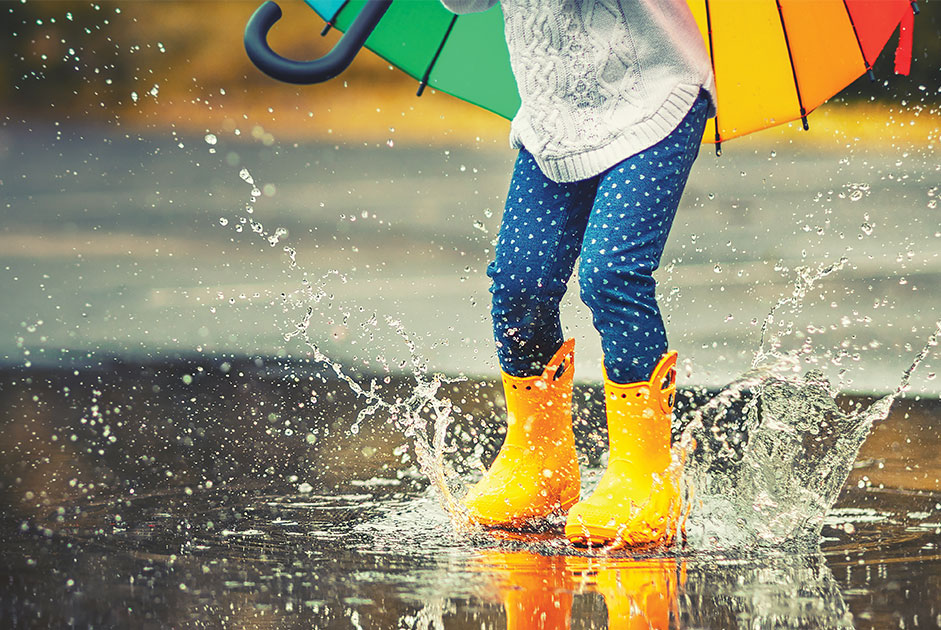BY BROOKE ORR
When I was pregnant with my first child, I read books, spoke to experts, made plans (and contingency plans) on how to keep my daughter safe and healthy once she arrived. This filled the 9 PLUS months of waiting for her to be born, but I soon realized life does not always go according to plan. That parenting lesson became abundantly clear as I tried to navigate parenting during a global pandemic (hint: there were no books, plans or experts on the subject). Thanks to other mothers’ wisdom and strong community support, I learned the most important tools in my “parenting handbook” are listening, empathy, empowerment and mindfulness. These tools take practice but can be used to raise healthy children who become thriving adults.
“The most basic of all human needs is to understand and be understood. The best way to understand people is to listen to them.” ~ Ralph Nichols
An important part of raising physically and emotionally healthy kids is learning to listen to their verbal and non-verbal cues. In the toddler phase, children often have a lot to say and will do whatever it takes to be heard. Practicing listening skills when kids are young makes it more likely they will continue to share the good, bad and ugly as they get older. This allows you to get them to experts like physicians or counselors if needed and give them advice and tools for handling tough situations. Regardless of your children’s ages, make a point to stop and give them your full attention. Make eye contact and repeat back what you hear to show you heard them and to clarify you understood. Listen and respond without judgment, increasing the likelihood your kids will continue to open up to you throughout the years.
“Empathy is when a person accurately communicates that they see another’s intentions and emotional state. It means watching our child’s frustration and focusing on how life feels in that little child’s body while putting our own agenda into the background.” ~ Andrea Nair
Good Start Early Learning says, helping young children develop a strong sense of empathy is beneficial for mental health, success, happiness and reduced stress. Taking the time to model and teach empathy sets the stage for a lifetime of physical and emotional health. The best way to teach kids empathy is to model it. Name your feelings to your child (as appropriate) and help them name theirs. When watching TV and reading together, pause to ask how they think the characters feel and why.
“Affirming words from moms and dads are like light switches. Speak a word of affirmation at the right moment in a child’s life, and it’s like lighting up a whole roomful of possibilities.” ~ Gary Smalley
The dictionary defines empowerment as the process of becoming stronger and more confident, especially in controlling one’s life and claiming one’s rights. Empowered children are more likely to be resilient children and adults who will advocate to meet their physical and mental health needs. Psychology Today says empowering children is guiding them to persevere when obstacles arise. Maureen Healy, the author of the article “Empowering Kids,” suggests parents reflect their child’s abilities, skills and qualities, so they see themselves as highly valuable, talented and capable. In addition, encourage your child to take appropriate risks and give him or her the opportunity to make age-appropriate choices. As they take risks and make choices, help them work through what worked and didn’t work, what they learned and, most importantly, what they will try next time.
“The path to a healthy body and happy soul is based upon self-study, mindfulness, love and awareness.” ~ Unknown
As a dietitian and mom, I have seen the positive effects of supporting mindful eating in children. Mindful eating allows children to recognize their unique physical needs and empowers them to meet them. They learn to decide what and how much to eat based on how their body feels in the moment, using basic nutrition as a guide while still practicing flexibility in their food choices. Learning to accept the present without judgment helps children accept their body size without comparison and shame. These important skills reduce disordered eating, yo-yo dieting and increase overall happiness. Jordan Harrold, LCSW says mindfulness is not about “doing it right;” it’s about paying attention while doing it. She suggests practicing the following mindfulness activities with your kids:
• Deep breathing. Breathe in through the nose (like smelling a flower) and out through the mouth (like blowing bubbles, not blowing candles out).
• Take time to notice. Name five things you see, four things you can touch, three things you can hear, two things you can smell and one thing you can taste.



















